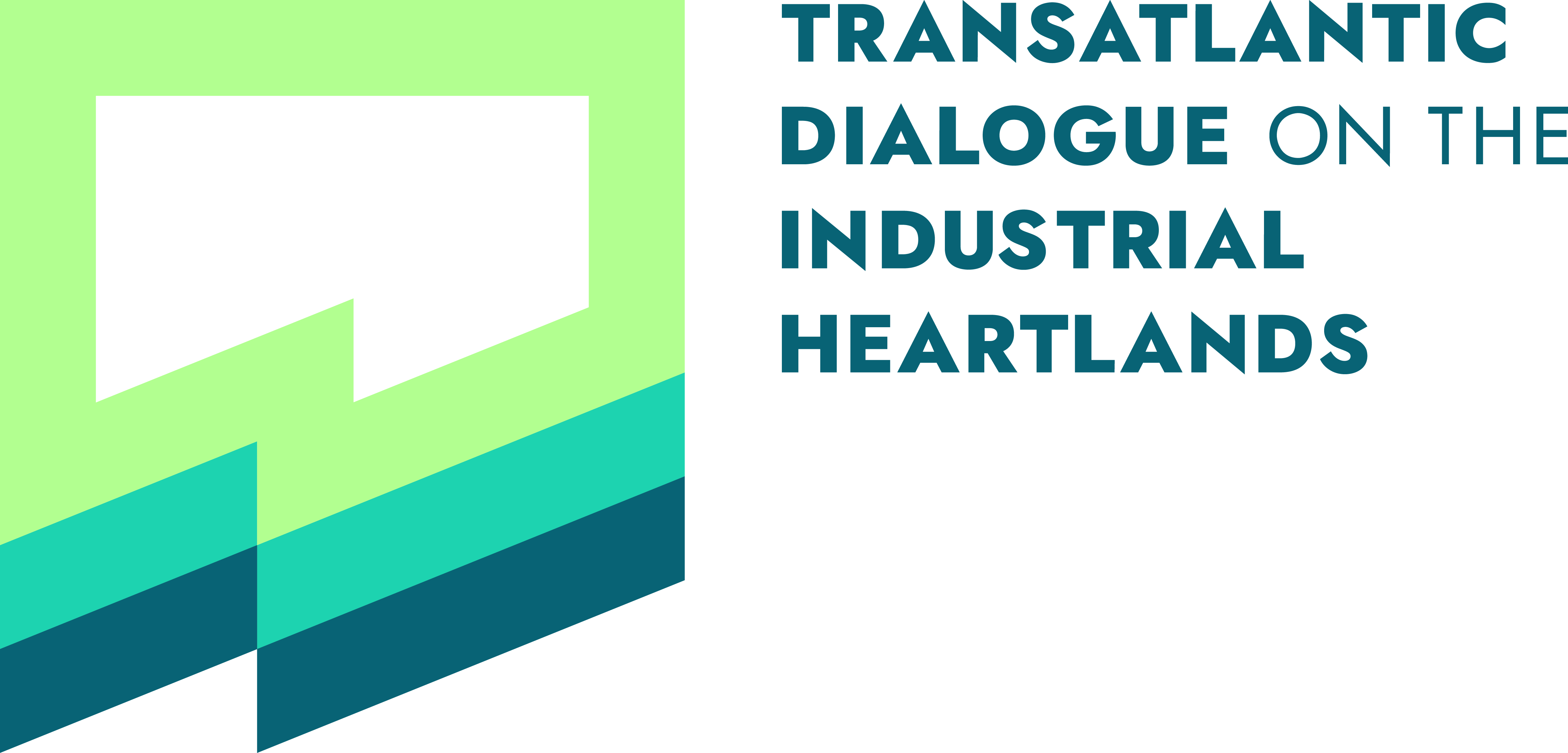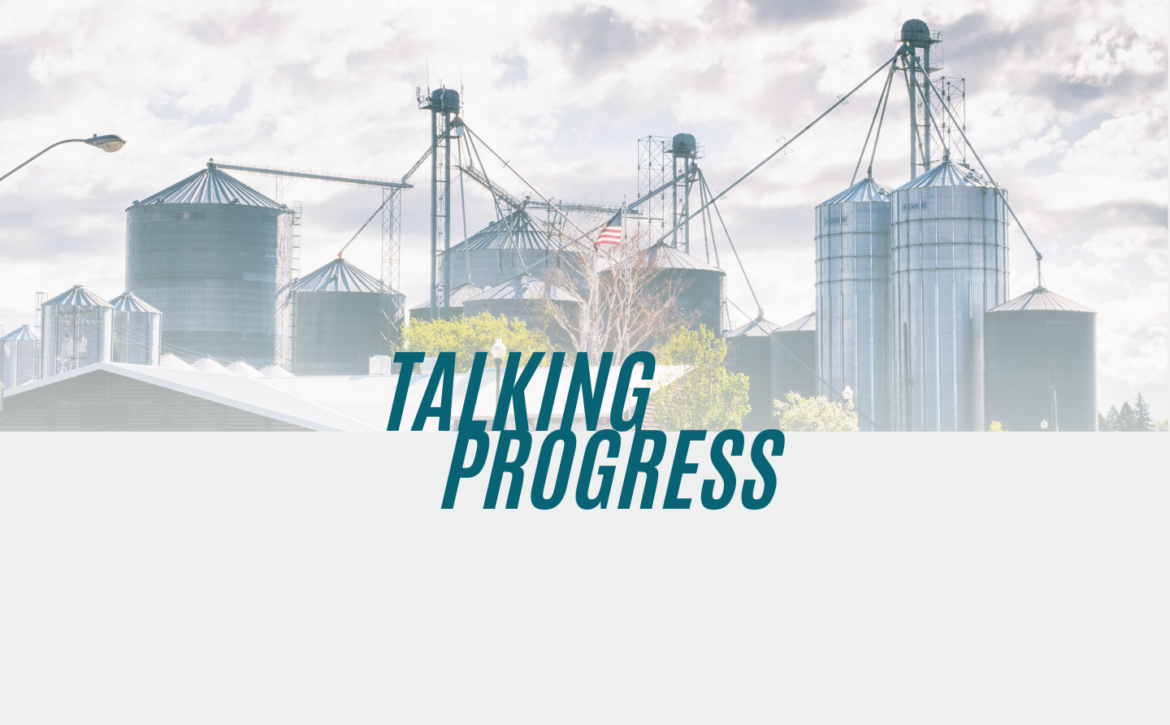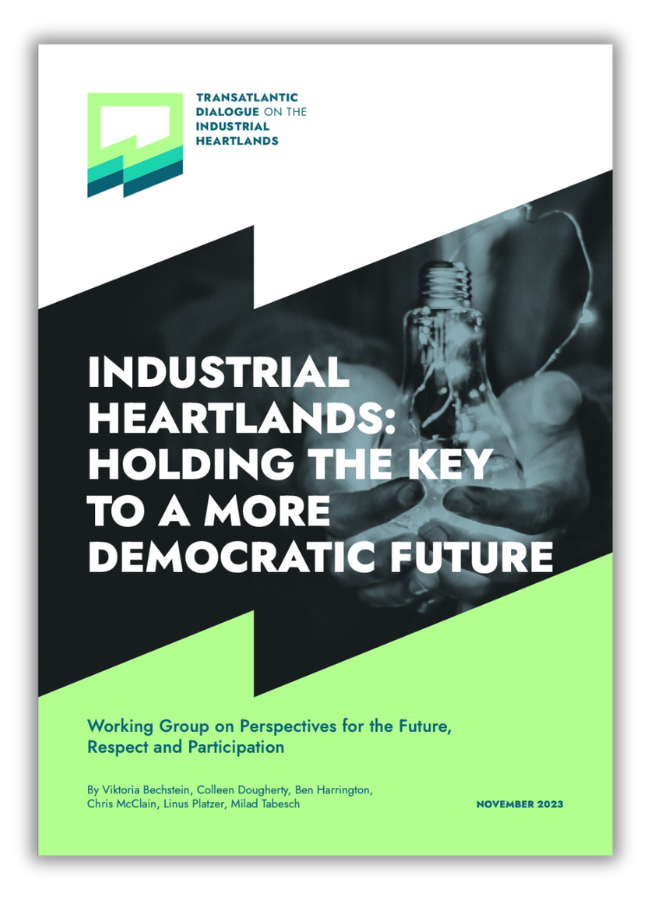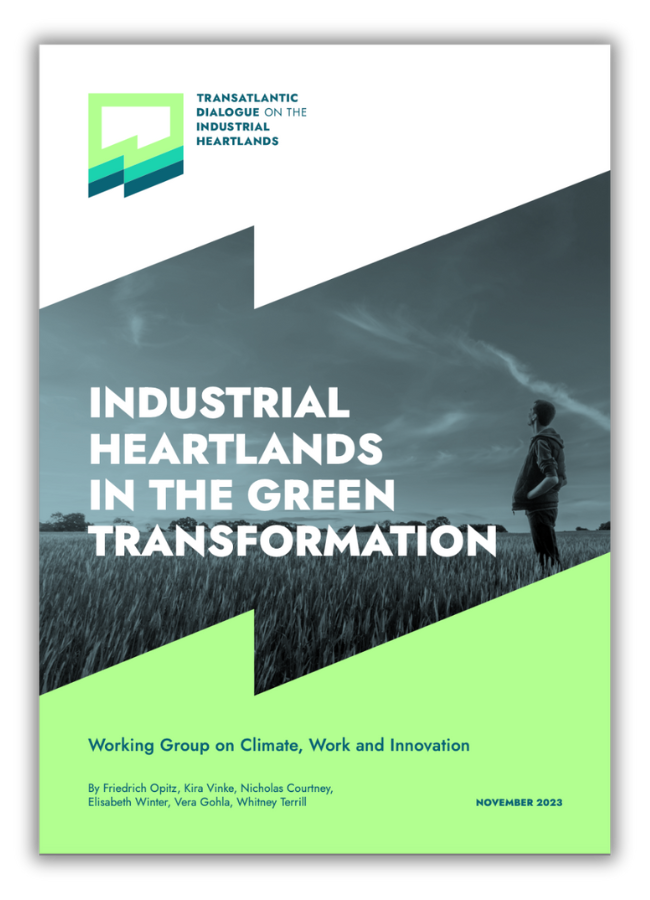Progressive industrial policy: an antidote for troubled times
Progressive Industrial Policy: An Antidote for Troubled Times
Author: Miguel Costa Matos
These are hard times. People are struggling with the cost of living and, disillusioned with things as they are, they are turning in increasing numbers to the far right. Progressives need to go beyond redistribution. We need a ‘thick industrial policy’, with strategy, cooperation and conditionality to deliver a future-proof economy, resources to sustain the welfare state and green investment and, crucially, opportunity for our generation.
‘It’s the economy, stupid!’ James Carville’s timeless words were key to Bill Clinton’s 1992 presidential victory, after focusing his campaign on the deepening recession. This was probably the first of a new generation of progressive victories, ranging from Tony Blair in the UK to Wim Kok in the Netherlands and Gerhard Schröder in Germany. Their ‘Third Way’ project brought a different perspective on economic policy, arguing Social Democrats should accept the mechanics of the market and its political hegemony after the fall of the Berlin Wall. At most, we could be capitalists with a conscience, using social policy to redistribute the dividends of growth. But, often, it was our political family who implemented privatisations, labour market and financial market deregulation, as well as strict welfare reforms.
The success of this political movement was short-lived and had its shortcomings. Not only were governments underwhelming in their transformative impact, but crucially, they stopped winning. This happened for three key reasons. Our mission as Socialists is to improve the lot of working people. But, all too often, we took them for granted, leaving low-income voters to either stop voting, or turn to other political outfits. Thomas Picketty has described this poignantly with his concept of a ‘Brahmin Left’. Democracy was not, as Anthony Downs had suggested, an economic function where voter share was maximised as a ‘catch-all party’ teasing centre and centre-right voters. Between the original and the copy, voters preferred the real deal and voted for the right anyway. Last but not least, the 2008 economic crisis came along, putting into question the intellectual and moral authority of the market and its steadfast advocates, both on the left and the right. In W. B. Yeats’ famous image, ‘things fall apart, the centre cannot hold’. With no succeeding policy consensus, the economic crisis has been outlasted by a crisis of political ideas. As Antonio Gramsci noted, a ‘crisis consists precisely in the fact that the old is dying and the new cannot be born; in this interregnum a great variety of morbid symptoms appear.’ Among these morbid symptoms are the rise of the far-right across much of the Western world and the deepening of neoliberal governance with the socialisation of risk and privatisation of reward.
Presently, we are called upon to be midwives of Gramsci’s ‘new’. Beyond the political importance of winning the battle for ideas and pushing back the radicalisation of the right, we face pressing challenges in climate change, migration, ageing and the digital transition that require investment, on the one hand, and a rewiring of the economy, on the other. Redistribution and palliative measures are not enough. Rather, we need to usher in a new economy that is future-proof, sustainable and delivers for working people. A stronger economy is, of course, capable of achieving more resources for welfare and investment. More importantly, it can sustain better jobs that give our generation not only the freedom to move but the freedom to stay, as proposed by Enrico Letta, who is drafting the High-Level Report on the Future of the Single Market.
‘What is to be done?’ we often hear, as if decades of ‘laissez-faire socialism’ made us forget how to intervene in the economy. Thankfully, there is hardly a need to reinvent the wheel. The policy instruments are much like those used in the present neoliberal paradigm. We, too, will use tax and financial incentives. We, too, will lower the cost of doing business through reform. Our policies will, however, come with a twist; rather than lowering taxes and wages across the board, we can direct incentives to firms that invest in R&D, decent wages and disadvantaged territories. Rather than reducing dismissal costs by embracing labour market flexibility, we can lower training costs and invest in skills. In short, we can deploy conditionality to ensure that there is socialisation not only of risk but also of rewards.
Portugal has managed to multiply its annual economic growth tenfold, from an average of 0.2 per cent from 2000 to 2015, when the Socialists came to power, to an average of 2.1 per cent since. The country has outpaced other survivors of Eurocratic austerity not only by restoring confidence in the economy, but by resorting to this toolkit. In 2022, the government signed a pact with trade unions and employers’ confederations to increase wages by 20 per cent over the next four years. Chief among its policies was a 50 per cent tax credit on the costs of wage hikes above 5 per cent. This, however, did not come for free. Of course, the state won by subsiding permanent wage increases for a single year, but, crucially, this incentive only paid out if firms reduced wage disparity and had signed a collective bargaining agreement in the last three years. This agreement has led both to the highest rate of wage growth since the start of the millennium and a boom in collective bargaining.
This, of course, cannot be done without strategy. We are not indifferent to the kinds of industries we are supporting. By upgrading incumbent sectors and developing a comparative advantage in new products, we need to look to where we can compete through high value rather than low cost. This can be achieved both vertically, integrating industries upstream and downstream, and horizontally, in related industries. For instance, Portugal has today expanded from being a ‘simple’ car manufacturer to producing components for most car plants across Europe, hosting the R&D for many of these parts, developing the software that goes into our cars and, even, attracting related industries, such as the flourishing aviation sector.
This does not come without risks, chief among them is the danger we might pick losers rather than winners. The very process of picking is vulnerable to private interests, or at least the perception these might be at play. This can only be counteracted by a ‘thick industrial policy’. Thickness is needed at both ends. Projects ought to involve cooperation between firms within an economic cluster and also with the innovation ecosystem. Governments, too, need to mobilise experts to help choose which projects to support. By broadening the pool of people with stakes in the enterprise, we not only call upon a broader pool of resources to help the project succeed. We also filter out those that are not viable.
Over 30 years on, ‘it’s (still) the economy, stupid’. The economic troubles brought about by the Covid-19 pandemic and the war in Ukraine have mobilised an unprecedented level of corporate welfare. Progressives need to think out a strategy and build up policies that can foster sustainable and shared prosperity. Ultimately, this is about much more than growth. It is about offering the working class better living conditions and an alternative to democratic disillusion and far-right protest. It is about reclaiming a future for Social Democracy and our planet.
Miguel Costa Matos is a Member of Parliament in Portugal, the Vice-President of the Socialist Party Parliamentary Group and deputy spokesperson for budget and finance affairs.








